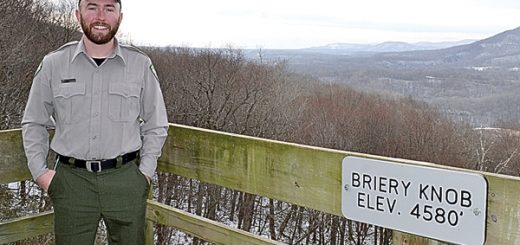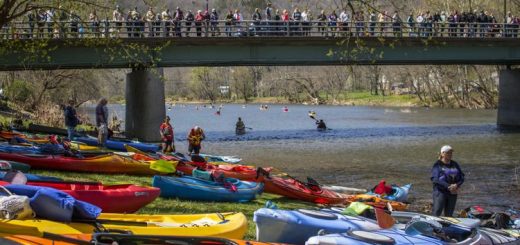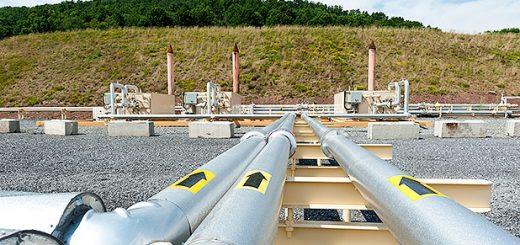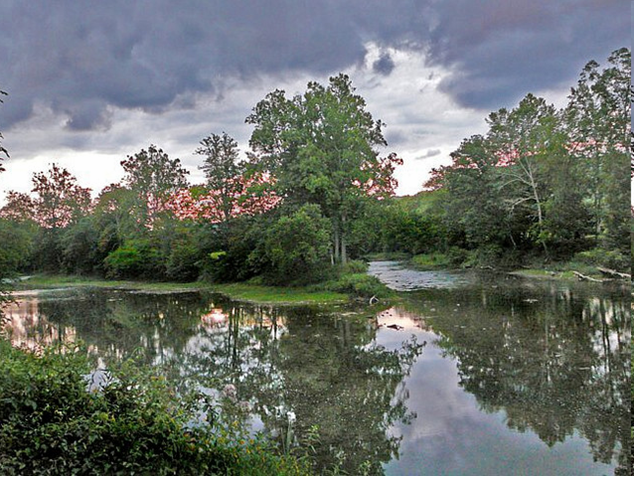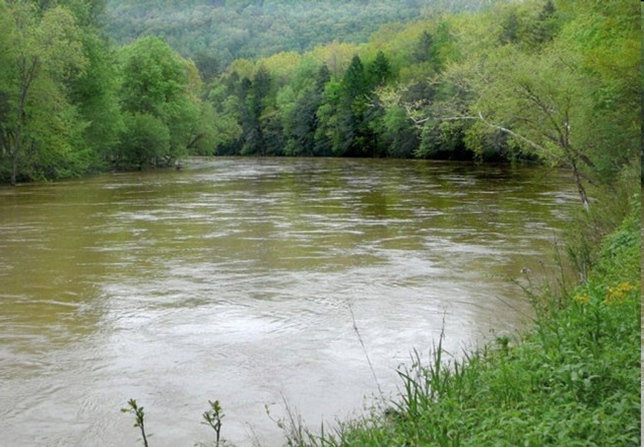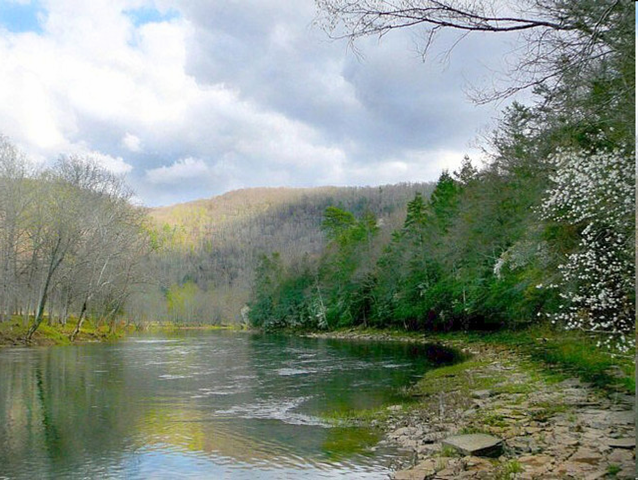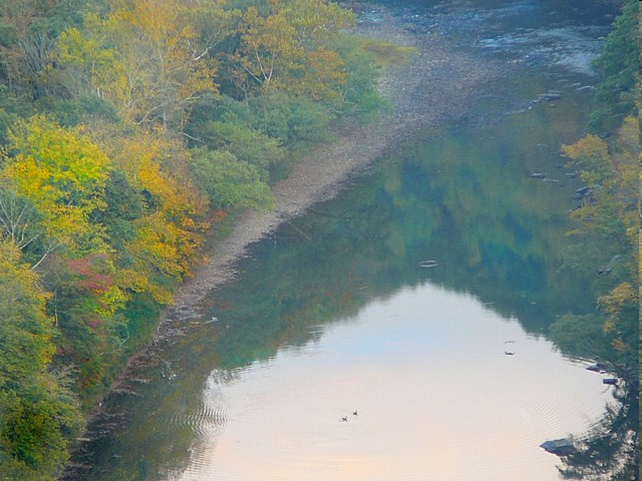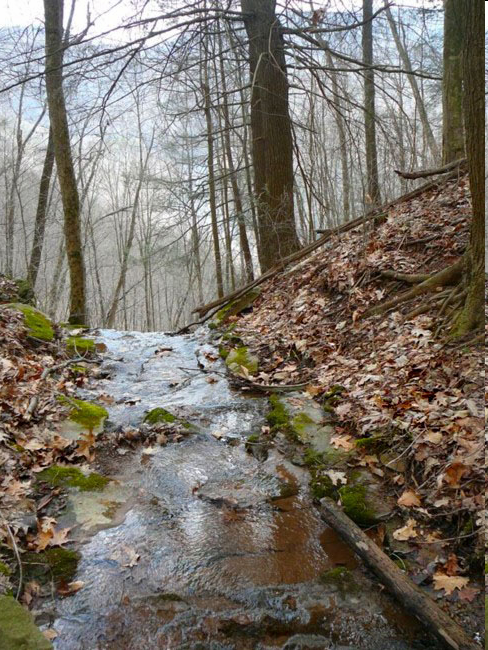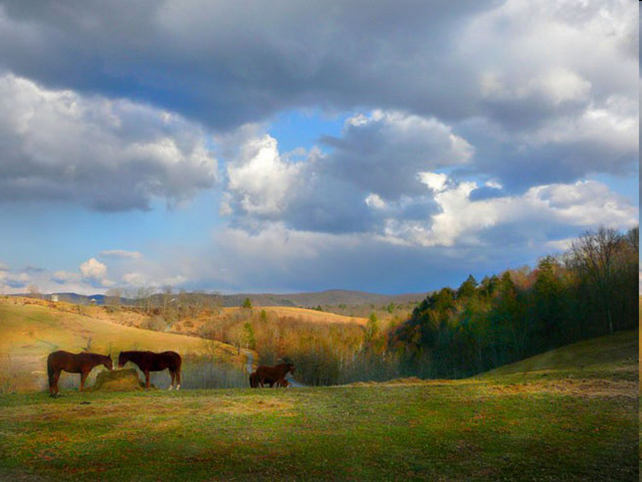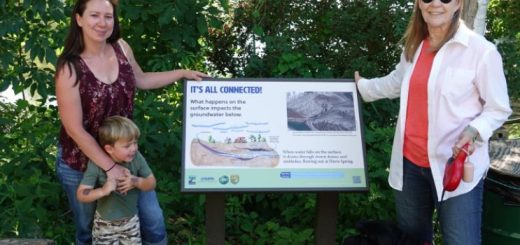Virginia’s pipeline projects and the aura of inevitability
Virginia’s pipeline projects and the aura of inevitability
This week, the Federal Energy Regulatory Commission gave Dominion Energy permission to begin cutting down trees in Buckingham County to clear the way for a massive compressor station the company wants to build as part of its Atlantic Coast Pipeline.
FERC’s letter Tuesday allows “non-mechanized” tree-felling — that means using handheld chainsaws — at the 65-acre site, as well as a nearby metering and regulating station. The approval came even though the proposed 54,000 horsepower compressor station still lacks an air permit from the Virginia Department of Environmental Quality.
That kind of minor detail hasn’t stopped FERC in the past. The agency approved tree clearing for the pipeline in Virginia in January even though state regulators hadn’t bestowed all the approvals Dominion and its partners needed to begin construction here.
The company still doesn’t have those permits, but has cut vast swathes of trees down along the route, including where it wasn’t supposed to, in fact.
Indeed, plunging ahead with as much work as it can get away with before all the i’s are dotted and t’s are crossed seems a deliberate strategy to deflate opposition and stay ahead of a slew of court decisions that have found major flaws in the federal approval process.
If trees are coming down here and pipe is going in the ground elsewhere, the thing must be getting built, right?
The DEQ, which is scheduled to present a report to the State Air Pollution Control Board next month as it considers a permit for the compressor station, long ago gave in to that aura of inevitability surrounding the ACP and a separate project planned to cross through southwest Virginia: the Mountain Valley Pipeline.
More than two years ago, The Roanoke Times reported that James Golden, the agency’s director of operations, told locals worried about the Mountain Valley Pipeline’s water quality effects that DEQ could, he supposed, “in theory” reject permits for the projects.
And since then, DEQ has twisted itself into knots to make it look like it was going above and beyond the regulatory call of duty without doing anything that might actually derail the MVP and especially the ACP.
Dominion’s pipeline, you see, was championed by former Gov. Terry McAuliffe before anyone had seen a single plan sheet depicting how the project could be safely built through some of Virginia’s steepest, landslide-prone terrain, though hundreds of waterways and across sinkhole-prone karst soil, with its labyrinthine connections to springs and aquifers.
All that for a project that opponents have derided as a “pipeline in search of market,” and one that relies on subsidiaries of the energy companies building it to prove the market demand for the gas it will deliver, a shell game that many contend obscures the fact that the gas isn’t really needed.
That claim has been buttressed by two sitting FERC commissioners who have said neither the MVP nor the ACP is in the public interest.
Yet all indications are that the DEQ will recommend that the board approve the compressor station air permit, an apparent foregone conclusion telegraphed by the agency’s claims going back months that the station will be “among the most, if not the most stringently controlled compressor station in the country.”
Dominion’s intent to site the station in a largely African-American enclave of Buckingham (necessary, the company says, to connect with the existing Transco pipeline) has raised objections of environmental racism, including by the Governor’s Advisory Council on Environmental Justice.
Those complaints, however, have largely fallen on the deaf ears of Gov. Ralph Northam, Lt. Gov. Justin Fairfax, Attorney General Mark Herring, and members of the Legislative Black Caucus.
Maybe not totally deaf, actually, but certainly tone-deaf.
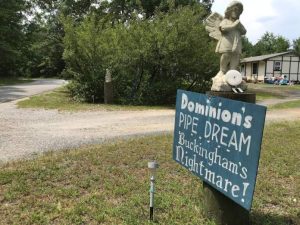
A sign on State Route 663 near Union Hill Baptist Church in Buckingham , one of several in the area opposed to Dominion Energy’s Atlantic Coast Pipeline. (Robert Zullo/ Virginia Mercury).
Secretary of Natural Resources Matt Strickler finally responded to the advisory council Tuesday in a terse letter that largely blames the broken federal approval process for the pipelines and tip-toes around the state’s considerable authority to regulate the projects.
“We share your frustration over the fact that the Federal Energy Regulatory Commission made decisions regarding siting, the use of eminent domain and cost-benefit analysis for these pipeline projects without the kind of thoughtful review we would have required,” Strickler wrote. “These decisions preclude us from taking many of the actions that landowners, conservationists and environmental justice advocates have asked us to take. Despite this, we have tasked the Department of Environmental Quality with ensuring that any permits or authorizations it proposes for these projects provide a heightened level of protection for air and water quality, particularly in communities most impacted and vulnerable.”
FERC, however, did not require the Virginia DEQ to cede much of its authority to review the hundreds of water crossings the pipelines will make to the U.S. Army Corps of Engineers.
Nor did FERC require the DEQ to conduct an all-out push to convince the State Water Control Board to issue water quality certifications for the projects during four days of marathon, befuddling and contentious meetings that saw that water board struggle to understand the limits of its authority and the convoluted regulatory framework DEQ had devised.
An e-mail by water board chairman Robert Dunn to the Richmond Times-Dispatch this past summer indicates that Dunn may not have understood that the denial of a water certification could have stopped the pipelines.
After the divided water board issued water quality certifications for both pipeline projects in December, erosion, sediment and stormwater approvals by DEQ followed in March for the MVP, allowing the pipeline to start work here.
But, in what seems a bit of mystery, nearly seven months later, Dominion hasn’t gotten the nod to start blasting, trenching and digging through waterways and across mountaintops in Virginia for the ACP.
Could it be the sizable body of evidence indicating that the plans approved for Mountain Valley Pipeline were inadequate to protect Virginia waters, including a notice of violation issued by the DEQ itself this past summer as streams were choked with mud and, more recently, large sections of pipe actually washing off the job site and floating onto neighboring property?
No, said Melanie Davenport, the DEQ’s water permitting division director.
“We haven’t approved them because we haven’t gotten all that information yet in the way it needs to be submitted,” she said.
Davenport talked to me after another a tense meeting of the water board last month, in which angry pipeline opponents took the board and the DEQ to task, begging them to protect state waters.
Many who had been faithfully attending water board meetings for more than a year expressed disgust with state regulators they said were more interested in looking out for big business than regular people.
Some called for DEQ Director David Paylor’s job, in which he nevertheless remains, to the endless frustration of environmentalists who supported Northam’s campaign. Others said it’s obvious the agency has permitted a project it’s unable to adequately supervise.
“This is hemorrhaging sediment,” said Roberta Bondurant, a Bent Mountain landowner and anti-pipeline activist. “You permitted a project that is failing that you can’t keep up with.”
And that, as environmental groups, landowners and other critics of the projects have been telling state officials for more than a year now, was also inevitable.
For more information visit The Virginia Mercury

